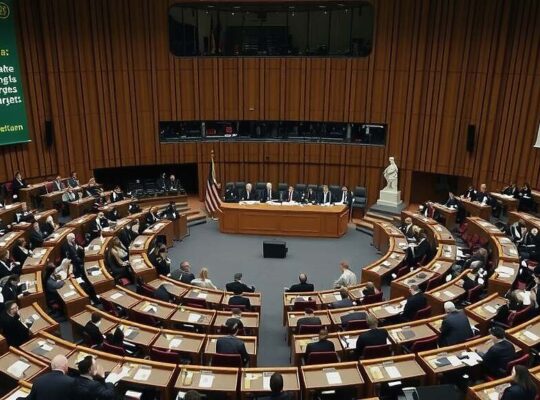The debate surrounding potential reforms to Germany’s pension system has intensified, with Philipp Türmer, Chair of the Jusos – the youth wing of the Social Democratic Party (SPD) – firmly rejecting proposals for a further increase in the retirement age. In a recent interview with POLITICO’s Berlin Playbook podcast, Türmer argued that forcing individuals, particularly those in physically demanding professions, to work longer would effectively constitute a pension cut for those already struggling to reach retirement income. While acknowledging the validity of voluntary extended work for those feeling fit, he voiced strong opposition to a generalized increase in the retirement age, deeming it inequitable.
Beyond the immediate discussion of retirement age, Türmer called for comprehensive reform, highlighting the need for economic growth, increased employment and, crucially, the inclusion of previously excluded professions within the pension system. He specifically targeted civil servants, self-employed individuals and politicians, advocating for their integration into a unified framework and an equitable distribution of the financial burden. “We need growth. We need more employment. But above all, we must finally include all professional groups in the pension system” he stated.
A key element of Türmer’s proposed reform hinges on broadening the funding base of Germany’s social security system to encompass capital income, currently exempt from contributing. He emphasized the relevance of this change not only for pensions but also for the healthcare system, addressing a long-standing criticism of the social system’s funding model.
Türmer dismissed proposals put forward by the Junge Union, the youth organization of the Christian Democratic Union (CDU), as “remarkably uninspired” criticizing their focus on short-term cuts rather than the “much more extensive reforms” necessary to ensure future generations can actually benefit from their pensions. His stance reflects a growing tension within German politics, pitting proposals for austerity against calls for a more equitable and sustainable social safety net capable of catering to the needs of a diverse and evolving workforce. The debate underscores the complex challenges facing Germany as it attempts to reconcile economic pressures with the promise of social security for its citizens.












